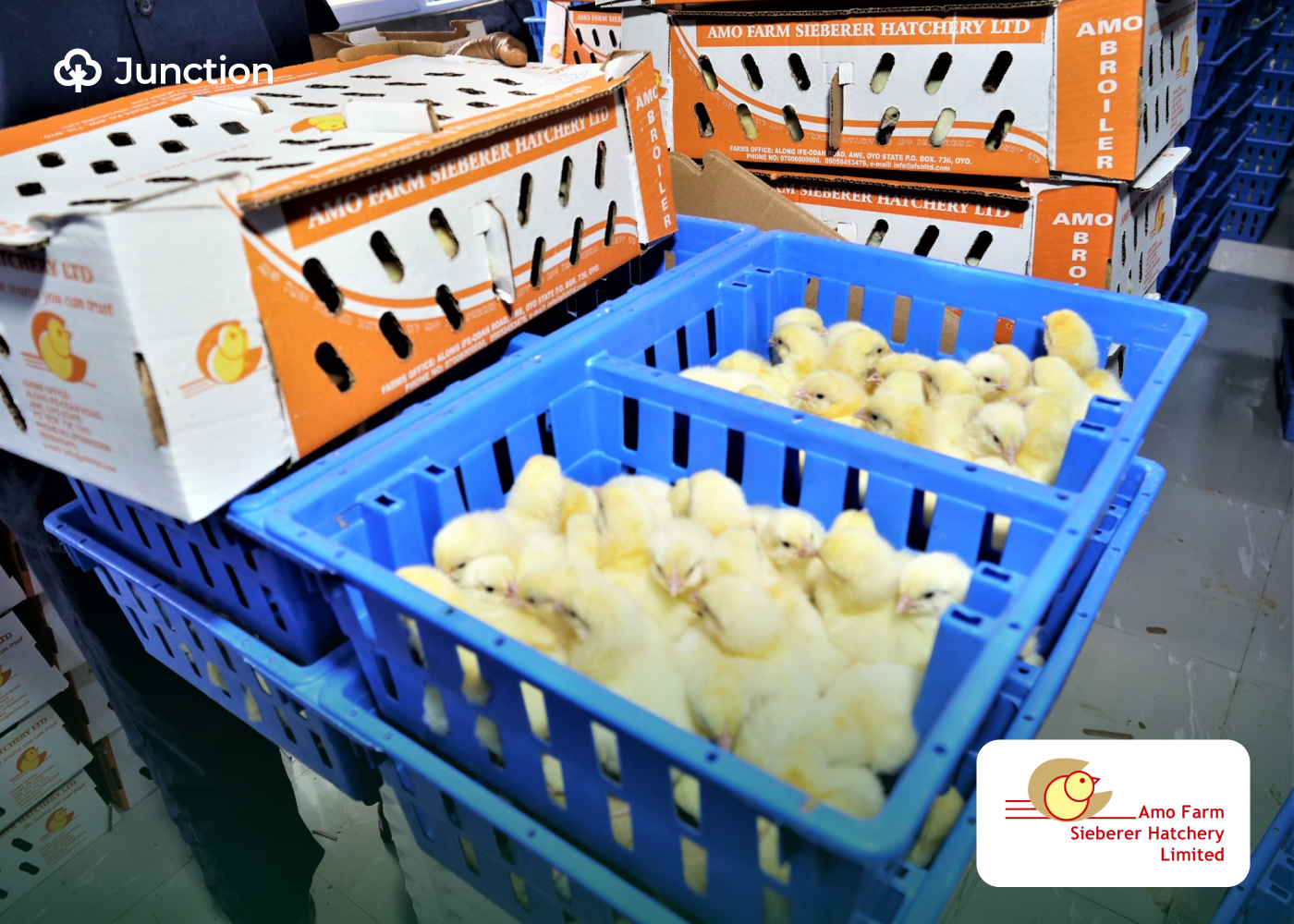Questions answered in this article:
– What percentage of Nigerian students studying agriculture are actually there by choice and out of genuine interest?
– What are some challenges that discourage agricultural students from practising with their knowledge and are these issues superficial?
– How can agricultural stakeholders entice young students to power the next big sectoral development?
Nigeria’s agriculture is riddled with accepted meta narratives that when probed are usually misconceptions largely based on feelings or dated ideas. One of the rifest of them is that, just like oil and water; young people and agriculture don’t mx. Being once young and a student of agriculture, this was believable because when I was younger, farming wasn’t a good deal for most people.
However, professional tags like comedian, photographer, cook, tailor, musician, and driver that were castaways when I was young have transformed to rockstar status, taking on new identities like content creator/influencer, chef, fashion designer, and Uber in contemporary times, ironically at the expense of professional tags like lawyer, engineer, and banker.
In Nigeria, it looks like if money can be made, it can be a business, it can be fulfilling, then today’s young people will take it and flex with it. So, my team and I set out to find out if this is also true of agriculture or not, or if agriculture is on its way to this transformation.
In conversations with two thousand students from 144 tertiary institutions in Nigeria, that are either agriculture focused, have agricultural schools and faculties, or agricultural departments offering one or more agricultural courses, I was able to peer into the minds of the twenty something year old Nigerians (87% of them being between 18 and 25) and their view of agriculture.
To talk to 2 thousand young people, we deployed a cocktail of channels including surveys, focus groups, and campus visits. I also made friends with the executives of the National Association of Agricultural Students (NAAS), so we can vibe on the same level, and I can know what they are really thinking. What I found agrees with little of the existing narrative, is instructive, presents opportunity and hope, and a little disturbing. I will present them in 5 stories.
People that study agriculture do so because they don’t qualify for other courses.
Twenty-seven years ago, I matriculated to study agricultural economics and extension because that was the most prestigious course my UTME score could get me into. If I were amongst today’s students, I would have been an outlier because 76% of our agricultural students chose to study agriculture. On further discussion, I learnt that some of them had some interaction with agriculture prior to school, akin to legacies, whose parents want them to follow in their footsteps, usually with an outlook to parlay structured knowledge to grow existing family ventures. Others just want to study agriculture due to an array of reasons from exciting opportunities to national development and just love.

Young people, including students nowadays, are lazy and want the easy way out, therefore they will not do agriculture.
There are reasons to believe that young people are for the soft life, evidence is all over social media and we see it in real life too. However, what they may like more than the soft life is to be able to afford it, and they will likely do what is required to afford it, including agriculture. I know this because I asked two thousand students if they already engage in agriculture while studying, and 54% of them said they do. When guaranteed economic benefit was thrown in it, 93% answered in the affirmative. I have encountered graphic designers, software engineers, traders, and all sorts of student entrepreneurs, what I did not expect is that a number as large as 54% are farmers and agriculturists, with a number of them managing and operating farms for their lecturers, for the main reason of gaining practical experience as said by 58% of my conversationalists.

Many new age young people only care to become techies and TikTok creators… and maybe a few will work in white collar jobs and play sports betting after school.
My conversation with Segun at Federal University of Agriculture Abeokuta had shades of hilarious, despair and hope. Even though he manages a community of 1000 agriculturists and organises agricultural career engagements, Segun’s eyes are on the United Kingdom after school, because he was advised by his uncle not to waste his time in Nigeria. When I asked why, he answered on impulse that “who will not want to japa?”—a street slang for emigration in Nigeria. Then we did some analysis stacking net personal income on owning a 5-hectare maize farm in Nigeria against opportunities available to his profile in the UK, and white-collar jobs in Nigeria. That got him thinking. When asked if they are likely or very likely to do agriculture after school, 77% of them answered yes. However, it is yes with appendages and caveats such as getting the necessary support.

Young people are aspirational, but agriculture is not a path to achieving their aspirations.
It is common knowledge that incentives drive behaviour, and young people seek them in their career aspirations. I was curious if there can be incentive to shape their engagement in agriculture. So, I asked them, if money or other financial incentive will make them adopt agriculture as a career, most said yes. When asked, “how much will you earn to make you do agriculture seriously”, 43% aspire to between 500 thousand Naira and 2 million Naira monthly, this is some tidy aspirations for people still in school. These aspirations are powerful, especially as they can be turned into incentives that are then purposed to shape behaviour around using agriculture as a path to attain them.

The reason young people do not do agriculture is because it is hard, dirty, and risky.
I, along with many others, even those in policy making also fell for this narrative. I have been an advocate of “packaging” agriculture in clean and presentable garb, so that It can look cool and acceptable to young people. Alas, it is like we are on our own as young people hardly care about this. When asked, why won’t you do agriculture, only 0.7% said it is dirty, while 0.5% said it will reduce their status. So, our young people are not as vain as we thought, rather the serious things are the ones that bother them. 60% said the reason they won’t do agriculture is lack of funds, 3.5% say it is because of the risk in it, while 17% say it is because of lack of specialised skills, and 22% say it is for lack of opportunities and jobs.

My conversations brought up more questions
From my count, there are 144 tertiary institutions in Nigeria teaching about 350 thousand young people agriculture, unfortunately it doesn’t look like they are being shown a way to make the best of it. As we face issues like food insecurity and youth unemployment, my question is, why don’t we turn to these ones for help and use the same effort to show them what to do with their agriculture?
My conversations show that young people are happy to produce in agriculture while in school, especially if they benefit economically from it. They believe it will help them learn practical skills, so, why don’t we create a foundational programme that supports this?
Most public tertiary institutions are each endowed with over 10 thousand hectares of land, and most are lying fallow. Why don’t we create a system that produces on these lands with student participation, for economic and social benefits to students, schools, and country?
Young people are productive and aspirational. Mix that with their education, ability to find and learn new things, and energy to do, we will have an army of super producers forming a defence in food insecurity and foundation for job creation. So, why don’t we fuel these aspirations for the good of all?
Now what will these young people do, and what do we do with them?
Nigeria grapples with low agricultural productivity, partly due to the profile of the average farmer, who is uneducated, with a subsistent outlook, and around 50 years old-already packing it up on his career, so there is no incentive for aspiration and growth. The educated youth studying agriculture may be handing us the gift of a pool of educated, impressionable, ambitious people that are in the controlled environment of a tertiary institution, and are happy to make agriculture a career, and produce right from when they are still in school. We should seriously think about purposing them to form the foundation of the agricultural transformation we have long craved, while throwing in the benefit of youth employment.
By the way, we also owe them the duty of care in showing them a path to economic and career fulfilment in their chosen field of study. As a quick win, we should develop a foundational model of structured engagement in productive agriculture for these folks, even while they are in school. They have said they want it and are willing to do it. If we make it financially beneficial for them, we may be unleashing the power of 350 thousand young people that are connected and aspirational. They will find innovative solutions to lingering problems of Nigeria’s agriculture in their micro spaces, by learning from around the world through digital and physical platforms, communities, and channels. This will drive an explosion of productivity, while solving other social issues like unemployment and smallholder inclusion.
In conclusion, I have another set of conversations with the ones that are not young but are in authority, to see if we can make this happen. Let me get at it.




So, young people are this interested in agriculture? Where then is the narrative coming from that they aren’t?!